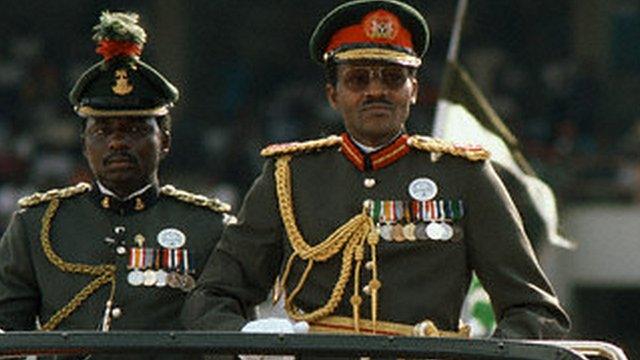Nigeria's President Muhammadu Buhari to run oil ministry
- Published
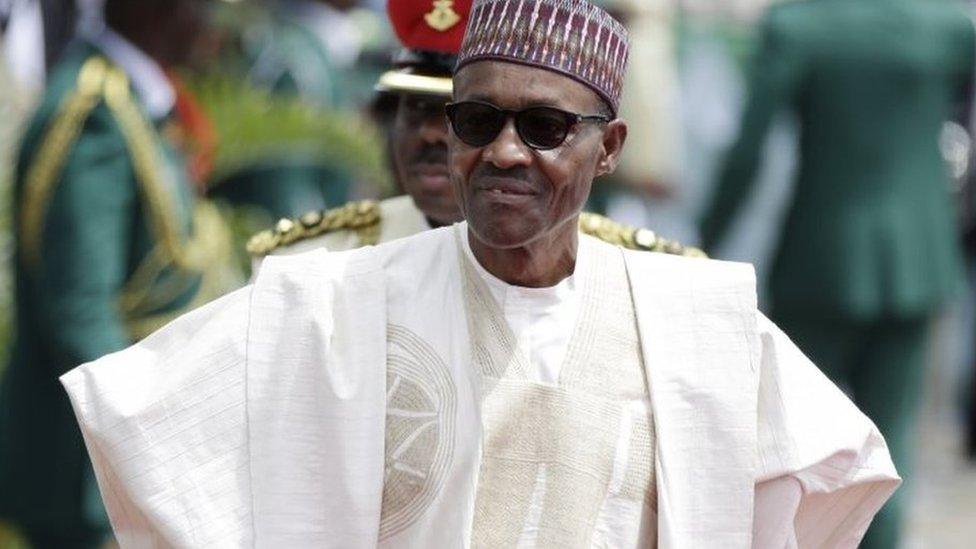
President Buhari has held key positions in the oil industry in the past
Nigeria's President Muhammadu Buhari has said he intends to remain in personal control of the oil ministry as he pursues an anti-corruption campaign.
He won elections in March partly on his tough stance on corruption.
He has vowed to trace and recover the "mind-boggling" sums of money that have been stolen from the oil sector.
Oil exports account for around 90% of Nigeria's foreign currency earnings and because of low oil prices, the country faces tough economic challenges.
Mr Buhari, who took office at the end of May, has submitted his list of ministerial nominations, the Senate president has tweeted, external.
Over the last four months, he has been dealing directly with the top civil servants, who run the ministries.
He has already split the state-owned NNPC oil company into two entities in a bid to tackle corruption.
Issue of trust
The BBC's Will Ross in Lagos says there had been plenty of speculation that President Buhari would put himself in charge of the crucial oil ministry.
He made the announcement at the UN General Assembly in New York, confirming that a junior minister would take care of the day-to-day running of the ministry while he took overall charge of cleaning up the notoriously corrupt sector.
The Nigerian leader said that in about 18 months he would consider whether to break up the NNPC further to improve efficiency and better root out corruption, Reuters news agency reports.
"We want to see what we have done in reducing the size and redeploying most of the management. We want to see the impact of that before we decide further," he said.
In the 1970s and 1990s Mr Buhari held key positions in the oil sector so he has some relevant experience for the job, our correspondent says.

Muhammadu Buhari at a glance:

The 72-year-old is first Nigerian opposition candidate to win a presidential election
Military ruler of Nigeria from 1984 to 1985 until deposed in a coup
Poor human rights record during that time and a disciplinarian - civil servants late for work had to do frog jumps
Appointed petroleum minister in 1976 and then chair of the newly created NNPC state oil firm
Under Gen Sani Abacha in the 1990s, was chair of Petroleum Trust Fund that undertook development projects
A Muslim from northern Nigeria, he is seen as incorruptible

The president wants to recover stolen money and is also keen to ensure that those responsible for the looting end up in court, our reporter says.
Some analysts suggest he does not trust anyone else to do such an important job.
His list of cabinet appointees is expected to be presented to the Senate for approval by the end of September.
Our reporter says the long time it has taken to make his choices seems to have been to allow for an extensive vetting process to find suitable candidates who have not themselves been corrupt.
- Published29 August 2015
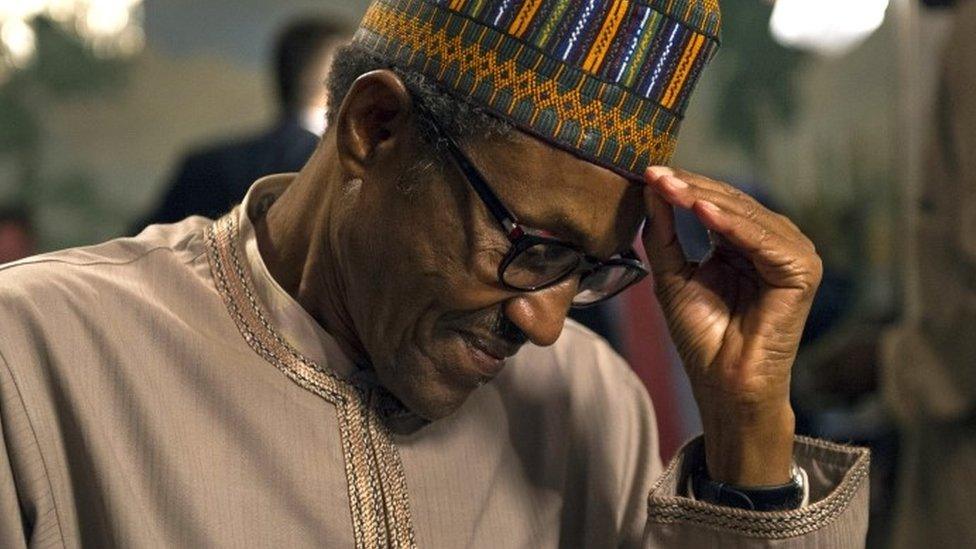
- Published27 February 2019
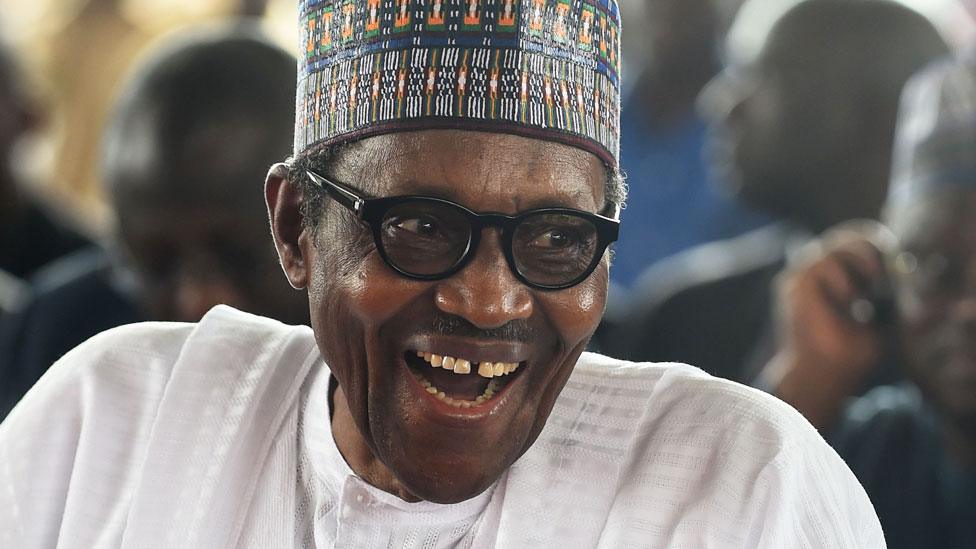
- Published28 May 2015
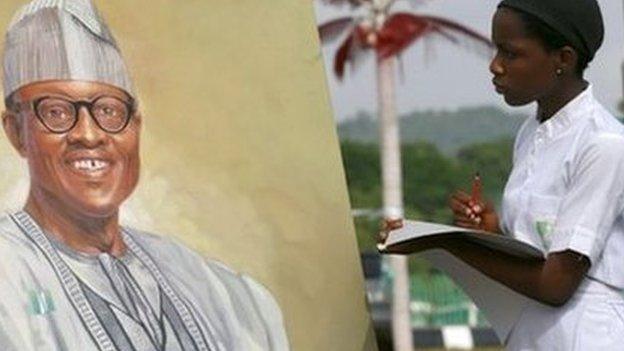
- Published13 July 2015
